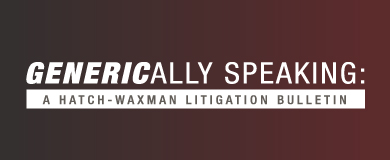- Acumen Powered by Robins Kaplan LLP®
- Affirmative Recovery
- American Indian Law and Policy
- Antitrust and Trade Regulation
- Appellate Advocacy and Guidance
- Business Litigation
- Civil Rights and Police Misconduct
- Class Action Litigation
- Commercial/Project Finance and Real Estate
- Corporate Governance and Special Situations
- Corporate Restructuring and Bankruptcy
- Domestic and International Arbitration
- Entertainment and Media Litigation
- Health Care Litigation
- Insurance and Catastrophic Loss
- Intellectual Property and Technology Litigation
- Mass Tort Attorneys
- Medical Malpractice Attorneys
- Personal Injury Attorneys
- Telecommunications Litigation and Arbitration
- Wealth Planning, Administration, and Fiduciary Disputes
Acumen Powered by Robins Kaplan LLP®
Ediscovery, Applied Science and Economics, and Litigation Support Solutions
-
April 23, 2024David Martinez Recognized Among Top 100 Lawyers in Los Angeles by LA Business Journal
-
April 15, 2024Robins Kaplan Named to 2024 BTI Client Service A-Team
-
April 9, 2024Robins Kaplan LLP Files Complaint Against Social Media Giants Meta, Snap, TikTok on Behalf of Spirit Lake Nation, Menominee Indian Tribe of Wisconsin
-
April 30, 2024Navigating Generational Dynamics
-
May 2-3, 2024ACI Advanced Forum on Managed Care Disputes and Litigation
-
May 6, 2024Litigating with the Legends
-
First QuarterGENERICally Speaking: A Hatch-Waxman Litigation Bulletin
-
March 2024e-Commerce: Pitfalls and Protections
-
March 25, 2024Endo Ventures Unlimited Co. v. Nexus Pharms. Inc.
-
September 16, 2022Uber Company Systems Compromised by Widespread Cyber Hack
-
September 15, 2022US Averts Rail Workers Strike With Last-Minute Tentative Deal
-
September 14, 2022Hotter-Than-Expected August Inflation Prompts Massive Wall Street Selloff
Find additional firm contact information for press inquiries.
Find resources to help navigate legal and business complexities.
Novartis AG v. Ezra Ventures, LLC
A patent-term extension of a continuation does not violate 35 U.S.C. § 156 because a patentee can extend the term for one chosen patent.
October 25, 2016

Case Name: Novartis AG v. Ezra Ventures, LLC, Civ. No. 15-0150-LPS, 2016 U.S. Dist. LEXIS 129502 (D. Del. Sept. 22, 2016) (Stark, J.)
Drug Product and Patent(s)-in-Suit: Gilenya® (fingolimod); U.S. Patent No. 5,604,229 (“the ’229 patent”)
Nature of the Case and Issue(s) Presented: The issue before the court was whether the ’229 patent was invalid as a matter of law because Plaintiffs had obtained a patent-term extension of the ’229 patent (an apparatus patent) while a continuation patent in the same family (a method patent using the claimed apparatus) had expired. Ezra argued that § 156(c)(4) limits the ability of patent owner to obtain a patent term extension when such extension would improperly extend the life of other necessary patents to practice the claimed invention. Ezra also argued that if the patent-term extension was proper, the patent was invalid for obviousness-type double patenting over the method patent.
Plaintiffs argued that the plain language of § 156(c)(4) limits the patentee to seek extension as to only one patent that covers a product. The court agreed with Plaintiffs that § 156(c)(4) was limited to only one patent that covered a product.
Why Plaintiffs Prevailed: The district court found that § 156(c)(4) was not subjected to a ‘de facto’ limitation as argued by Ezra because Congress did not use such language. Further, the plain language of § 156(c)(4) was limited to only one patent that covers a product, and Ezra did not assert that Plaintiffs sought extension of more than one patent. The district court also rejected Ezra’s public-policy argument that extension of the apparatus patent precludes the use of the expired method patent using the claimed apparatus because a patent is not the right to practice the claimed invention but rather a right to preclude others from practicing the claimed invention.
As to Ezra’s argument concerning obviousness-type double patenting, the district court rejected the argument at the pleading stage as there was not sufficient evidence to find as a matter of law that the asserted patent was invalid.
Related Publications
Related News
If you are interested in having us represent you, you should call us so we can determine whether the matter is one for which we are willing or able to accept professional responsibility. We will not make this determination by e-mail communication. The telephone numbers and addresses for our offices are listed on this page. We reserve the right to decline any representation. We may be required to decline representation if it would create a conflict of interest with our other clients.
By accepting these terms, you are confirming that you have read and understood this important notice.
